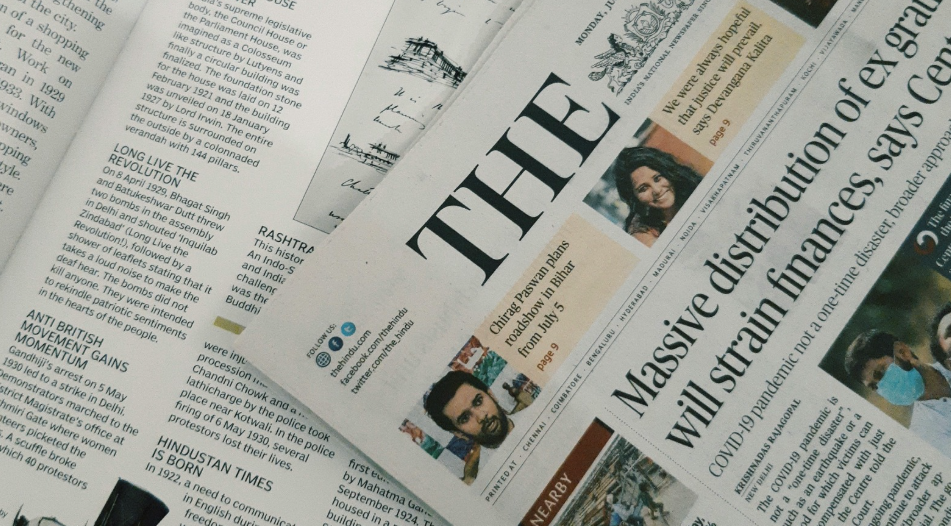
Recently, BBC Radio 4’s Today programme interviewed the UK CEO of Santander about the Spanish bank’s acquisition of British lender, TSB (full disclosure: Headland has advised TSB for several years).
The interview, conducted in one of the regular business news slots on Today, was notable for one thing in particular: almost nothing was discussed about the deal’s rationale, its merits for shareholders, or what it meant for Santander’s plans in the UK.
Instead, most of the questions were about consumer matters – branch closures, customer access, and the impact on products like mortgages and savings.
This one example highlights a growing shift in the British media; a conscious move away from “Business” news and towards “Money” or personal finance-focused content.
Tracking the trend
Take three other examples that highlight this trend:
- The BBC arguably began this shift when it rechristened the former Business and Economics Unit as its Money and Work team in 2022.
- Last month, The Sun shuttered its daily Business page in print and threw its resources behind its online Money pages.
- And the recent relaunch of The Times’ app carried a clear statement of intent by combining Business and Money into the same section – and placing Money articles above those on Economics and Company News within that.
This is an important shift. And it’s happening for a clear reason.
Reacting to The Sun’s decision, the paper’s former Business editor Steve Hawkes said it was “critical for media to work out how to invest behind business coverage when it doesn’t seem to do the job for clicks, SEO or social media ‘reels’.”
In other words, it seems that most readers, listeners and viewers don’t want business news. But they do want (or at least editors and publishers believe they want) ‘Money’ news about cost-of-living life hacks, lists of the best or cheapest kitchen appliances, and advice on how to remortgage.
This is not to suggest that this kind of content isn’t important. It is, and it makes a difference to people’s lives.
An impact on investment?
But if business news is receding in perceived importance or value, and if company news is being covered in fewer places, that has consequences.
One is the impact on companies that want or need to tell their story. There are fewer places in the media to do so, especially for more nuanced or complex stories.
Another is the implication for companies who want to do the opposite. Fewer reporters focused on ropey balance sheets, CEO pay, lost contracts, or company underperformance means less scrutiny and exposure.
There’s a third implication as well, for the UK government. At the very moment it is striving to create a stronger retail investment culture and reinvigorate London’s stock markets, business news reporting is being deprioritised or stripped back.
Although, it could be argued that the shift to money news should entice more people to take an interest – but only if investing is covered alongside mortgages, cost of living hacks and other things.
The counter argument to all this of course is that there are still excellent, well-resourced places where business news reigns supreme. Bloomberg continues to invest in editorial talent at a prodigious rate. The FT remains strong thanks to a roster of world-class journalists. And The Times, despite the shift noted above, continues to produce excellent business coverage from a highly experienced team.
There are also a growing number of specialist outlets, many in the form of Substack newsletters covering individual sectors and other business niches.
Despite those exceptions, the trend away from business among mainstream news outlets is clear.
So, is this just the natural end-state of a subscription-dependent media landscape? Perhaps. Is this is a good thing for the British media and the public consumption (and public good) of news? Probably not.
Counting the clicks
In the wake of the financial crisis 15 years ago, business news was said to be “sexy”, and prominent business journalists like Robert Peston became household names. Maybe, ultimately, this is just the end of that cycle and a return to the norm where business news is for the few, not the many.
The answer? “It’s simple,” as my Headland colleague and former Telegraph business editor Ben Wright explained when I asked him about the shift.
“Straight business stories get fewer page clicks than consumer-focussed money stories. Under an advertising-led model, there used to be a trade-off: a CEO reader was worth more than a single pensioner, say. Now, with a subscription model, they’re worth (roughly) the same.”
Good quality business journalism will carry on. It just won’t reach the eyes and ears of as many people as it once did.
For companies communicating in this altered landscape, that means a stronger, tighter story told to remaining business outlets and reporters, or a willingness and ability to mould their story to this new money-focused era.
Read more Insights & News
